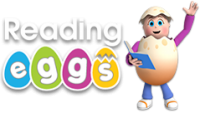Thinking Skills and Personal Capabilities


The development of pupils’ Thinking Skills and Personal Capabilities is a key element in the Northern Ireland Curriculum, and in Ballytober PS we have a clear vision to place cognitive education or thinking skills at the core of learning and teaching.
In doing so we are following the “Thinking School” model described by the late Professor Bob Burden. He defines a “Thinking School” as:-
“An educational community in which all members share a common commitment to giving regular careful thought to everything that takes place. This involves both students and staff learning how to think reflectively, critically and creatively, and employing these skills and techniques in the co-construction of a meaningful curriculum and associated activities.
Successful outcomes are reflected in students across a wide range of abilities, demonstrating independent and co-operative learning skills, high levels of achievement and both enjoyment and satisfaction in learning.
Benefits will be shown in ways in which all members of the community interact with and show consideration for each other and in the positive psychological well-being of both students and staff.”
In practical terms this means that a number of key strategies are in place. These include:-
- Ensuring that there is effective leadership by the Governors, Principal, Coordinator and Drive Team.
- Setting out action plans which guide our development as a “Thinking School.”
- Providing professional learning opportunities in thinking skills for all our staff.
- Ensuring there is a consistent and developmentally coherent language of thinking throughout the school for pupils and staff to utilise.
- Equipping our pupils with the tools necessary for them to become good thinkers.
We use the “Thinking Schools” model set out by the University of Exeter to ensure that pupils use visual tools for thinking, engage in effective questioning to guide enquiry-based learning, develop positive dispositions for learning, and work collaboratively with others. To fulfil these learning intentions, we use a number of thinking tools and approaches. These include, David Hyrle’s “Thinking Maps”, “Write from the Beginning and Beyond” (enabling pupils to use Thinking Maps to plan and organise their writing), “Philosophy for Children” (P4C) and Kagan’s “Cooperative Learning Structures.” To develop positive motivational dispositions for learning we use resources such as “My Happy Mind” and “Mind Me Mind You.” We are working to become an officially accredited “Thinking School.”
More detailed information on each of these thinking tools can be found by clicking the buttons below.
Ballytober Primary School, 60 Priestland Rd, Bushmills, County Antrim, BT57 8UR
Phone: 028 2073 1404













